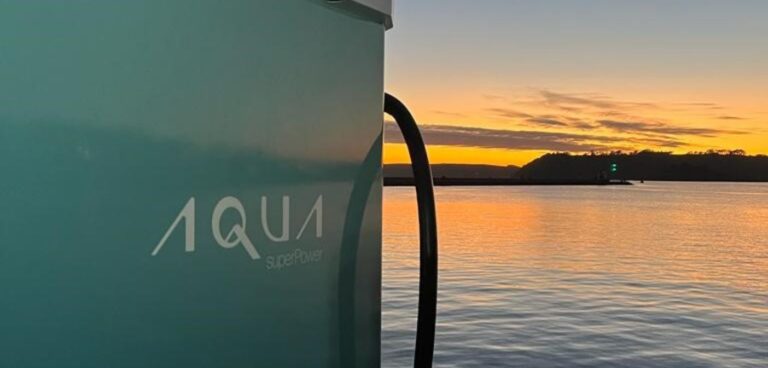Clean marine mobility solutions provider Aqua SuperPower has announced that it is leading a consortium that has secured UK government funding to explore the development of bi-directional boat charging in the UK.
The funding announcement follows the installation of the UK’s first marine charging network in Plymouth to support electric vessels last year.
The Virtual Bunkering for Electric Vessels (VBEV) project brings together two UK businesses, with electric boat charging operator Aqua SuperPower and British bi-directional charging and smart energy technology company Indra.
Also involved are low emission transport firm Cenex and the University of Plymouth.
The consortium plans to carry out a feasibility study to determine the financial, technical and operational business case for the deployment of bi-directional charging infrastructure in the marine sector.
What’s more, the group hopes to also assess the environmental benefits of this technology, and lay the groundwork for a UK demonstrator of bi-directional boat charging.
The VBEV project is part of the Clean Maritime Demonstration Competition Round 2 (CMDC2), launched in May 2022, and is funded by the Department for Transport and delivered in partnership with Innovate UK.
“We are proud to have been successful in winning our second Clean Maritime Demonstration Competition project, which is evidence of Aqua SuperPower’s marine charging expertise and industry authority,” said Alex Bamberg, CEO of Aqua SuperPower.
“As project lead, we look forward to working with our highly experienced consortium partners towards decarbonising the marine sector and to accelerate the transition to clean alternative propulsion systems.”
Aqua SuperPower will be responsible for the overall management of the project and developing a commercial business case for the deployment of bi-directional charging and designing a demonstration plan for the technology.
The four partners intend to engage with electric boat builders, marina operators, the local and national grid, as well as representatives of boat users, to support the building of a business case.
The group has said that delivery of the scheme will be a significant step toward helping the marine sector to realise the benefits of the transition to alternative propulsion vessels, maximising CO2 savings, reducing costs and improving operation.





